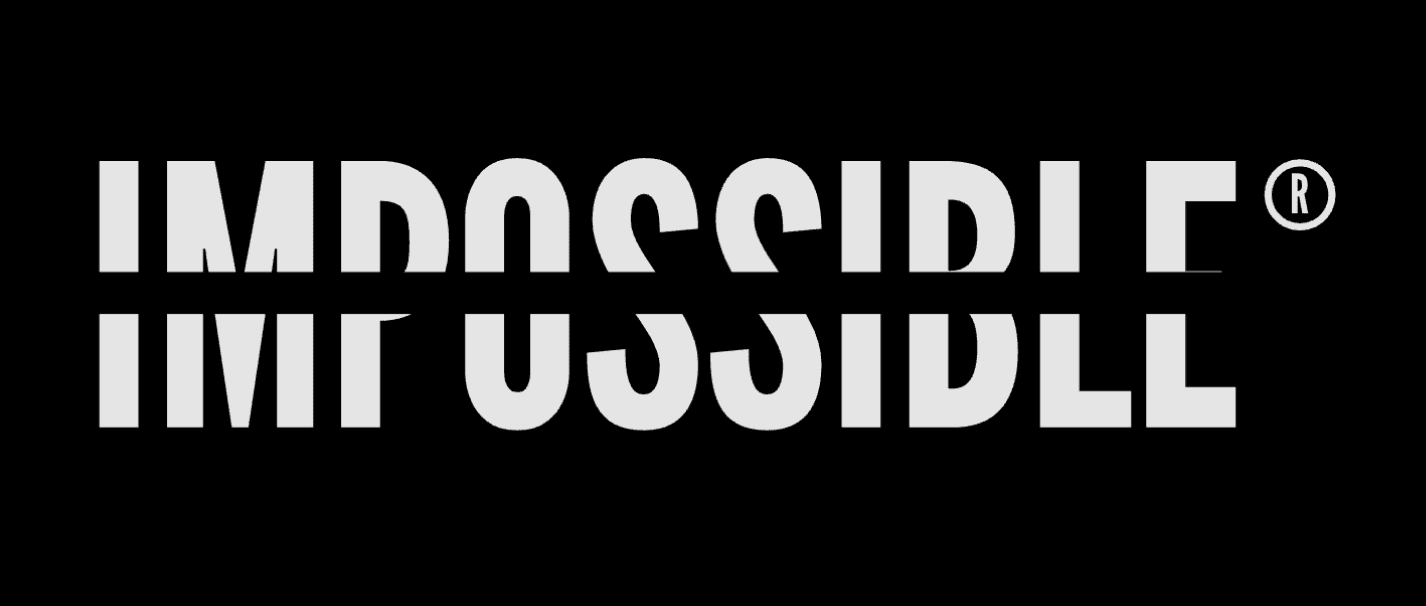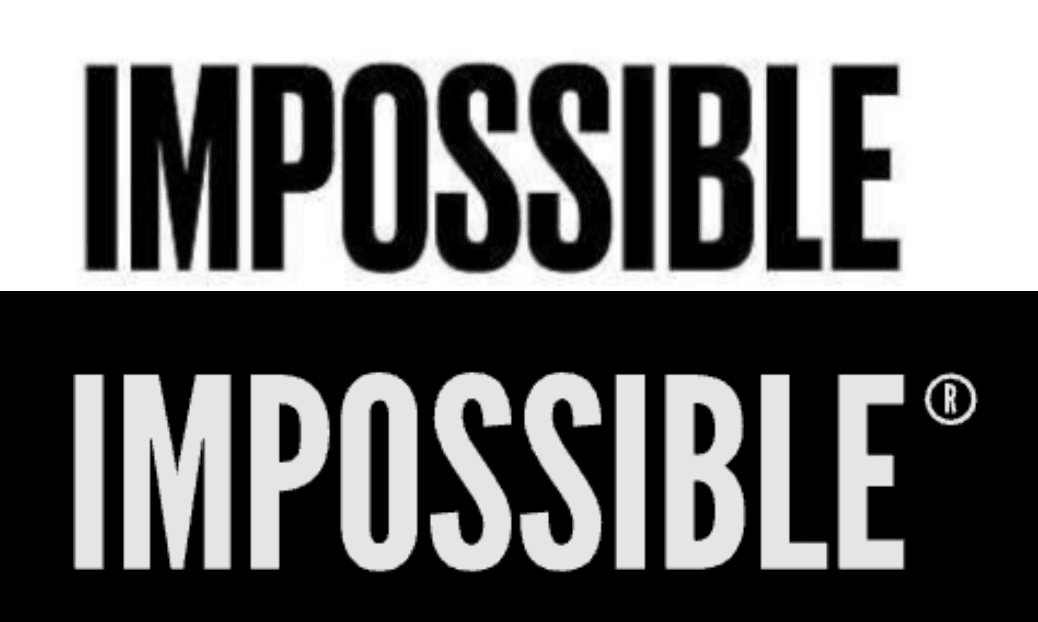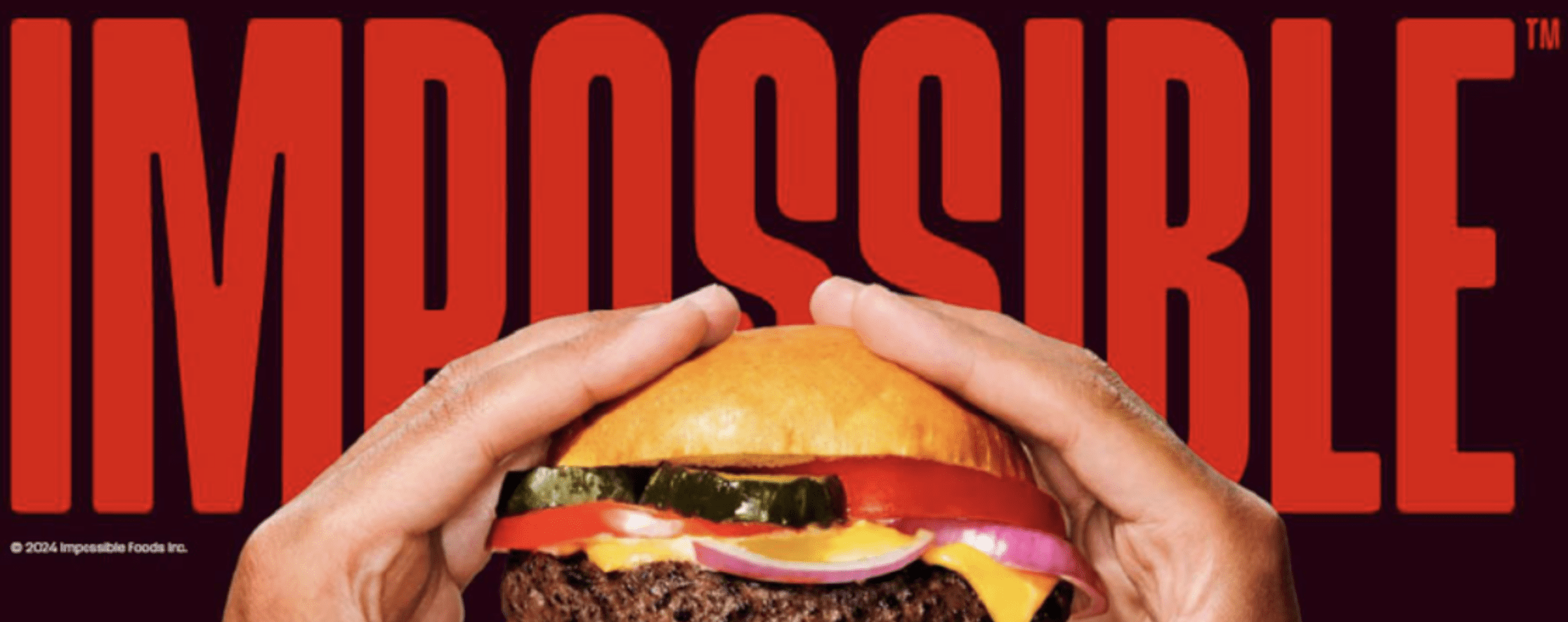Impossible LLC, a small Austin‑based performance lifestyle company, is locked in a years‑long trademark battle with plant-based meat giant Impossible Foods. The small business has operated under the “Impossible” name since 2010, three years before the other company.
This is not the first time the multi-billion-dollar company has been accused of oppressing small businesses with lawsuits. The case, now in federal court in California, centers on whether the billion‑dollar brand’s trademark rights outweigh those of the longstanding Texas business.
Background
In 2010, Impossible LLC was founded by Joel Runyon. The company’s name originated from Runyon’s personal “list of impossible things” he sought to accomplish. As he completed these goals, he would check them off the list. This led him to create a blog encouraging others to “do something impossible.”
The blog’s logo included the word “IMPOSSIBLE” in all caps. According to court filings, the logo was “sometimes rendered with a strikethrough to denote the accomplishment of crossing something off the list.”

Impossible LLC
Runyon began providing and promoting content related to “fitness, nutrition, diet, and wellness.”
Success led Runyon to create Impossible X LLC (later Impossible LLC) and Impossible HQ, as a hub for the company’s online business offerings. By 2012, this included performance apparel, a triathlon training guide with recipes and nutritional information, and several other health, nutrition, and fitness-focused products.
By March 2012, Impossible LLC had obtained its first federal IMPOSSIBLE-formative trademark registration with the United States Patent and Trademark Office (USPTO).
Impossible Foods’ Origin
In 2013, a company called Maraxi, Inc.—which reportedly made artisanal cheeses from nuts—was looking to rebrand with the mission “[t]o invent and provide great tasting plant-derived foods to replace animal-based foods worldwide.” The leading name choice for this rebrand was “Impossible Foods.”
Before the decision was final, Maraxi’s general counsel reportedly commissioned a comprehensive trademark search report in October 2013. The report listed Impossible LLC’s trademarks and websites, but did not prevent Maraxi from rebranding to Impossible Foods.
In April 2020, Impossible Foods applied for an IMPOSSIBLE-formative trademark to provide “information about recipes, ingredients and cooking information; providing an online computer database to consumers featuring information about recipes, ingredients and cooking information.”
Impossible LLC—who had long been offering such services—sent a letter to Impossible Foods in November 2020, seeking to clarify the intent of their trademark application and a “mutual agreement regarding a defined coexistence to avoid consumer confusion.”
Ultimately, Impossible LLC filed a trademark opposition before the USPTO and granted Impossible Foods extra time to respond.
According to Runyon, “The day before the discovery was due, they filed this lawsuit.”
The Lawsuit
The lawsuit—which argues that Impossible Foods’ rights to the trademark are superior—was initially thrown out in 2021 based on jurisdiction. In 2023, Impossible Foods sued to have it reinstated, and the 9th Circuit Court of Appeals in San Francisco decided they could refile their claims.
The court reasoned that since Impossible X was originally founded in San Diego (before being moved to Austin), it is subject to jurisdiction in California. The case is currently before the United States District Court, Northern Division of California, in San Jose.
Runyon told Texas Scorecard, “After 3 years, we were finally able to enter our counterclaims—including the issues of the close logos—as a countersuit.”

White background: Impossible Foods. Black background: Impossible LLC
“Two weeks after we filed claims, they announced their new red ‘branding’ and logo,” he continued. “They make no mention of the 3-year-long lawsuit.”

Impossible Foods New Logo
The two parties were required to attend a court-ordered mediation in July. The night before, Impossible Foods reportedly filed new claims against Impossible LLC. Impossible Foods claimed that their plant-based trademark gives them trademark rights to all edible goods and services, and Runyon was sued personally.
Impossible Foods also claimed they were never aware that Impossible LLC sold supplements, but Runyon contends this is a “suspect claim” since the supplements were mentioned in a cease and desist letter years earlier.
Last week, both parties filed a summary judgment brief. Impossible LLC argued to have the case ruled on immediately, while Impossible Foods argued the case should proceed to the bench trial scheduled for November.
Context
Impossible Foods has become notorious for lawsuits of this kind. The multi-billion dollar company has been accused of burying small businesses under legal fees in “David vs. Goliath” fights.
In one such case, Impossible Foods sued a company called Motif in 2022 for patent infringement over the use of a heme protein ingredient. In the settlement, Impossible Foods acquired Motif’s heme-related business, intellectual property, and expertise.
A Motif spokesperson described the lawsuit as “nothing more than a baseless attempt by Impossible Foods to stifle competition, limit consumer choice, and impede Motif, a new and innovative company with significant business momentum.”
The Impossible LLC case has gained momentum since Runyon began posting a series of videos to his X account, covering how many days Impossible Foods has been suing his company.
Runyon’s videos have targeted Impossible Foods’ artificial ingredient list for its “fake meat,” how much equity the company has lost in previous years, the company leadership’s quick turnover rate, and more.
“I really don’t like bullies,” Runyon told Texas Scorecard. “I have been running IMPOSSIBLE ® for over a decade and a half. From being unemployed in my parents’ basement to running an ultra marathon on every continent to raising hundreds of thousands of dollars to build schools for kids around the world through Impossible.org – IMPOSSIBLE ® has been my life’s work.”
Should the court rule in favor of Runyon and Impossible LLC, it could signal an end to Impossible Foods’ practice of litigating its competition into submission. As Runyon has stated, “This is either my last impossible challenge or my best one (yet).”
Impossible Foods and its attorneys did not respond to Texas Scorecard’s request for comment before publication.
If you or anyone you know has information regarding court actions or cases relevant to Texans, contact our tip line: scorecardtips@protonmail.com.





